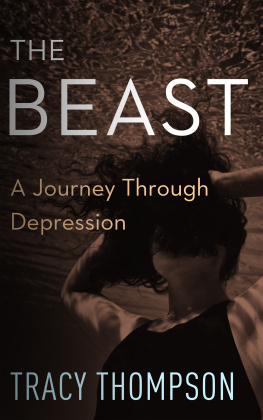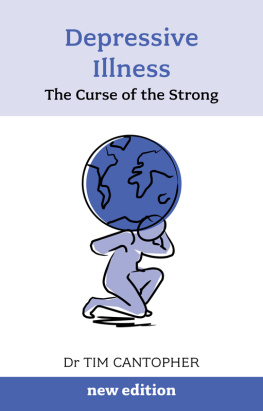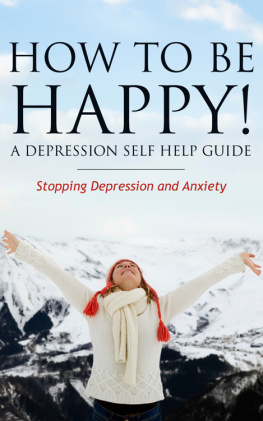Tracy Thompson - The Ghost in the House: Motherhood, Raising Children, and Struggling with Depression
Here you can read online Tracy Thompson - The Ghost in the House: Motherhood, Raising Children, and Struggling with Depression full text of the book (entire story) in english for free. Download pdf and epub, get meaning, cover and reviews about this ebook. year: 2009, publisher: HarperCollins, genre: Home and family. Description of the work, (preface) as well as reviews are available. Best literature library LitArk.com created for fans of good reading and offers a wide selection of genres:
Romance novel
Science fiction
Adventure
Detective
Science
History
Home and family
Prose
Art
Politics
Computer
Non-fiction
Religion
Business
Children
Humor
Choose a favorite category and find really read worthwhile books. Enjoy immersion in the world of imagination, feel the emotions of the characters or learn something new for yourself, make an fascinating discovery.

- Book:The Ghost in the House: Motherhood, Raising Children, and Struggling with Depression
- Author:
- Publisher:HarperCollins
- Genre:
- Year:2009
- Rating:5 / 5
- Favourites:Add to favourites
- Your mark:
The Ghost in the House: Motherhood, Raising Children, and Struggling with Depression: summary, description and annotation
We offer to read an annotation, description, summary or preface (depends on what the author of the book "The Ghost in the House: Motherhood, Raising Children, and Struggling with Depression" wrote himself). If you haven't found the necessary information about the book — write in the comments, we will try to find it.
An award-winning reporter for the Washington Post, Tracy Thompson was thirty-four when she was hospitalized and put on suicide watch during a major depressive episode. This event, the culmination of more than twenty years of silent suffering, became the point of departure for an in-depth, groundbreaking book on depression and her struggle with the disease. The Beast shattered stereotypes and inspired countless readers to confront their own battles with mental illness. Having written that book, and having found the security of a happy marriage, Thompson assumed that she had learned to manage her illness. But when she took on one of the most emotionally demanding jobs of all—being a mother—depression returned with fresh vengeance.
Very quickly Thompson realized that virtually everything she had learned up to then about dealing with depression was now either inadequate or useless. In fact, maternal depression was a different beast altogether. She tackled her problem head-on, meticulously investigating the latest scientific research and collecting the stories of nearly 400 mothers with depression. What she found was startling: a problem more widespread than she or any other mother struggling alone with this affliction could have imagined. Women make up nearly 12 million of the 19 million Americans affected by depression every year, experiencing episodes at nearly twice the rate that men do. Women suffer most frequently between the ages of twenty-five and forty-four—not coincidentally, the primary childbearing years.
The Ghost in the House, the result of Thompsons extensive studies, is the first book to address maternal depression as a lifelong illness that can have profound ramifications for mother and child. A striking blend of memoir and journalism, here is an invaluable resource for the millions of women who are white-knuckling their way through what should be the most satisfying years of their lives. Thompson offers her readers a concise summary of the cutting-edge research in this field, deftly written prose, and, above all, hope.
Tracy Thompson: author's other books
Who wrote The Ghost in the House: Motherhood, Raising Children, and Struggling with Depression? Find out the surname, the name of the author of the book and a list of all author's works by series.











